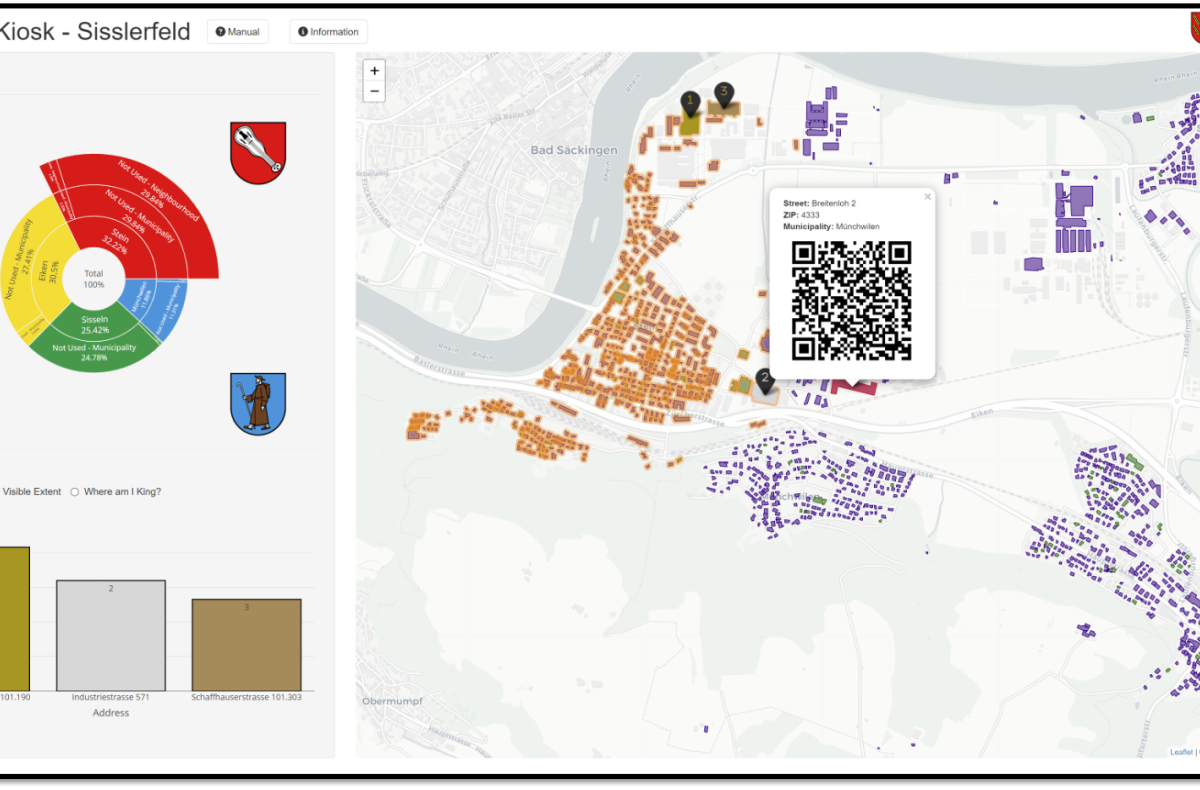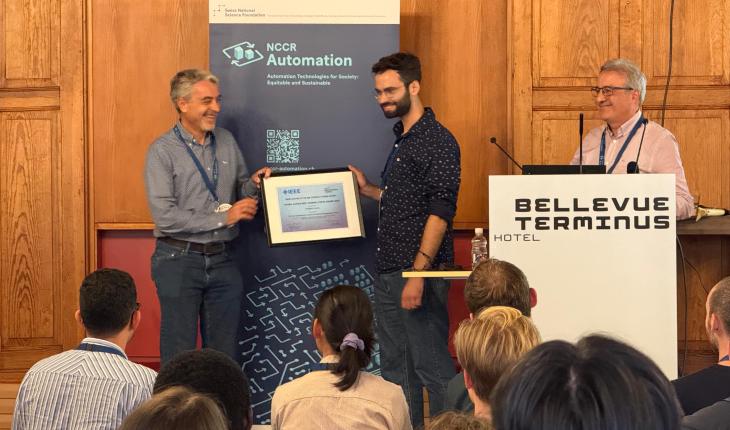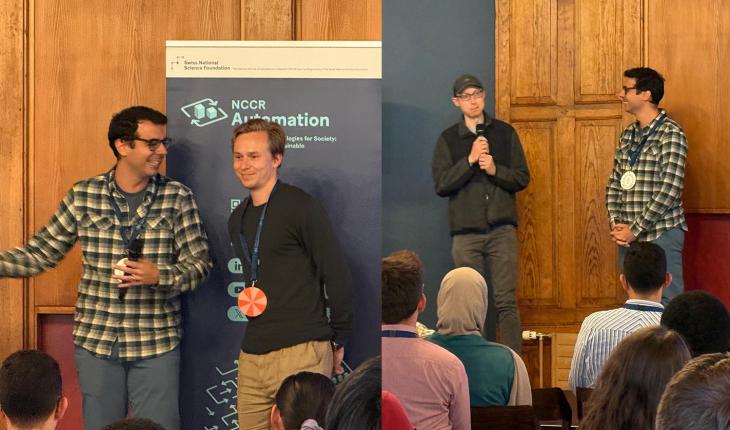Data Kiosk wins Lighthouse Award for fun access to open data

The work of the NCCR Automation, with its strong focus on methodological development, is inherently mathematically centered. The risk of this approach is that it can sometimes be quite far removed from reality in the field, since one of the main components of automation is data, real data, which provides information on the state of a system locally.
It is not uncommon for Swiss scientists to use the data they find in international databases to simulate the new automation system they have developed. However, this data doesn't always reflect the local reality found in the particularities of our Alpine territories, such as sunshine, temperature or atmospheric pressure. This can lead to biases, particularly in the context of renewable energies.
"There are some good open databases in Switzerland, such as those generated by the Swiss Federal Office of Energy,” says Benjamin Sawicki, coordinator of knowledge and technology transfer at the NCCR Automation. "But scientists are unaware of this and don't know where to find them, especially as they are often scattered throughout Switzerland." It was to fill this gap that he came up with the idea of the Data Kiosk.
A blue-sky idea become reality
The Data Kiosk idea was launched as a joke, but quickly gained momentum. During a hackathon on open data, he came up with the idea of centralising this information in a touch-screen app. After a meeting between the student community and industrialists to gauge the feasibility of and interest in his idea, he tried, unsuccessfully, to obtain funding from Innosuisse to bring it to fruition. Despite this setback, his creative impetus continued and he collaborated with a computer development specialist at ZHAW to create an application that locates and visualizes the data available in Switzerland.
The result is the Data Kiosk prototype: an application that allows users to zoom in on Swiss regions and ask questions on specific topics. For example, they can ask about the state of insulation of house roofs, their surface area, which ones have solar panels, or who has the largest roof surface. In this way, they can get precise, practical answers in a fun way. "You can use this kind of access tool to make Swiss data easily accessible," Benjamin explains.
Benjamin Sawicki has specifically focused his Data Kiosk on data relevant to the energy and mobility sectors, which are critical for the NCCR Automation. By being on a single platform, data is more easily accessible to stakeholders – scientists, industrialists, politicians and even the general public. For example, users can determine which region is best for solar energy, or how many kilometers can be covered by their electric bike powered by the solar panel installed on the roof of a specific house, depending on the day's weather.
For this prototype, the Data Kiosk incorporates open data from just four municipalities in Canton Aargau sharing a large common industrial area, the Sisslerfeld industrial zone, where the NCCR Automation runs technology transfer projects. A computer and touch screen were brought to the Sisslerfeld site to test the concept. The result: the Data Kiosk has been adopted by everyone who has tried it, even in its current prototype state.
Future deployment across Switzerland?
The NCCR Automation has ambitious goals for the Data Kiosk. Firstly, the School of Art & Design in Lucerne has been contacted to improve the design and ergonomics of the prototype so that it becomes a user-friendly and attractive application. In addition, Benjamin aims to "extend the platform to include more Swiss data and regions". The project should thus become a benchmark for the use of open data on energy and mobility in Switzerland, simplifying access and enabling informed decisions to be made based on reliable data.
Benjamin also stresses the importance of communication between society and academic research: "We need to talk and explain things to as many people as possible.” The Data Kiosk contributes to this goal.
For the SNSF, the ability to centralise and make data accessible represents a major step forward in the management and dissemination of open data in Switzerland. The Lighthouse award is granted in recognition of the project’s transformative research potential as well as its potential impact on society.
Article by Yann Bernardinelli.




